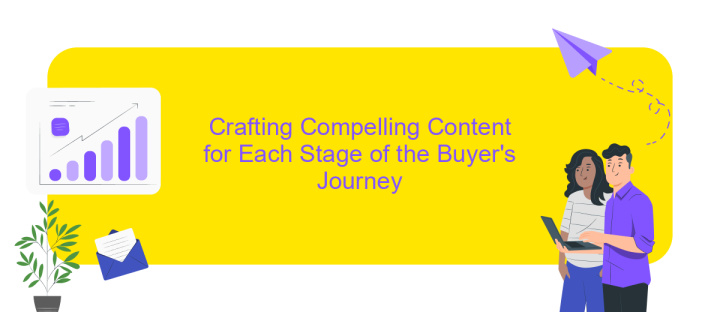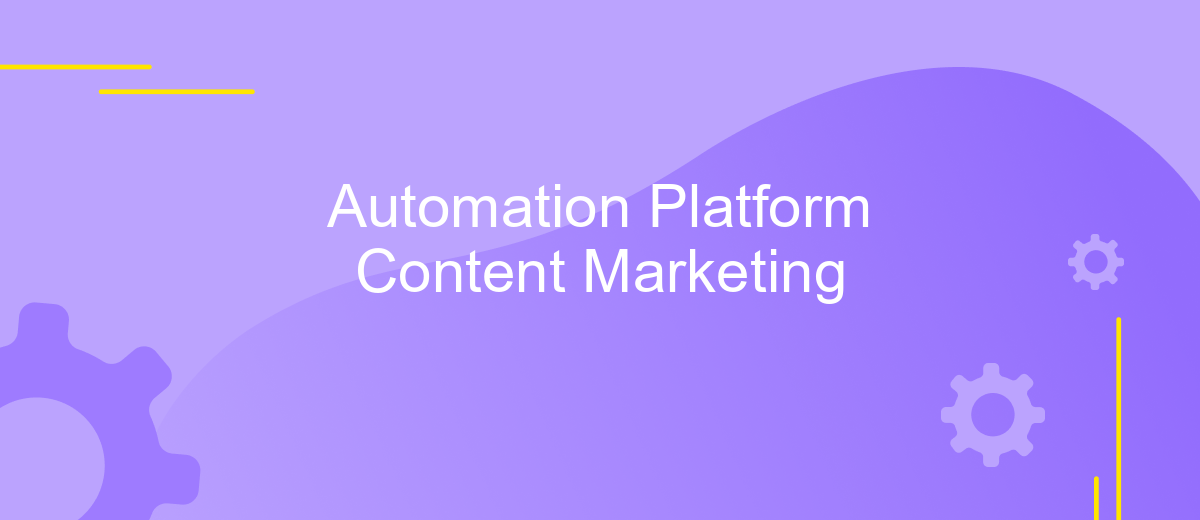Automation Platform Content Marketing
In today's fast-paced digital landscape, leveraging automation platforms for content marketing has become essential for businesses seeking to optimize their strategies and enhance engagement. These platforms streamline content creation, distribution, and analysis, enabling marketers to focus on crafting compelling narratives that resonate with their audience. By harnessing the power of automation, companies can achieve greater efficiency, consistency, and impact in their marketing efforts, ultimately driving growth and success.
Understanding the Automation Platform Landscape
The automation platform landscape is rapidly evolving, offering businesses innovative tools to streamline their content marketing efforts. These platforms enable marketers to efficiently manage campaigns, analyze performance, and engage audiences at scale. Understanding this landscape is crucial for leveraging the right tools to enhance marketing strategies and achieve business goals.
- Comprehensive Campaign Management: Automation platforms provide end-to-end solutions for planning, executing, and monitoring content marketing campaigns.
- Data-Driven Insights: Advanced analytics features help marketers understand audience behavior and optimize content for better engagement.
- Seamless Integration: These platforms often integrate with other marketing tools, ensuring a cohesive strategy across various channels.
- Personalization at Scale: Automation allows for tailored content delivery, improving customer experience and conversion rates.
As businesses navigate the complexities of digital marketing, selecting the right automation platform becomes a strategic decision. Evaluating features, scalability, and ease of use is essential to maximize the platform's potential. By staying informed about the latest developments in automation technology, marketers can drive more effective and efficient content marketing initiatives.
Defining Your Target Audience and Their Needs

Understanding your target audience is crucial for successful content marketing. Begin by analyzing demographic data such as age, gender, location, and occupation to create a detailed audience profile. Additionally, delve into psychographic factors like interests, values, and lifestyle to gain deeper insights. This comprehensive understanding will help tailor your content to resonate with your audience's preferences and motivations. Utilize surveys, social media analytics, and customer feedback to gather relevant data and refine your audience profile continually.
Once you have a clear picture of your target audience, focus on identifying their specific needs and pain points. This involves understanding the challenges they face and how your product or service can provide solutions. Create content that addresses these needs, offering valuable insights and practical advice. For instance, if your audience struggles with integrating various marketing tools, consider highlighting platforms like ApiX-Drive, which streamline integrations efficiently. By addressing your audience's needs directly, you build trust and establish your brand as a reliable resource in the industry.
Crafting Compelling Content for Each Stage of the Buyer's Journey

Creating content that resonates with your audience at each stage of the buyer's journey is crucial for effective content marketing. Understanding the unique needs and questions of your audience at different stages allows you to tailor your content to guide them smoothly from awareness to decision.
- Awareness Stage: Focus on educational content that addresses common pain points. Blog posts, infographics, and social media updates can help attract attention and build interest.
- Consideration Stage: Provide in-depth content like whitepapers, eBooks, and webinars that offer solutions and insights. This helps potential buyers evaluate their options and consider your offerings.
- Decision Stage: Develop content that reinforces trust and showcases your value proposition. Case studies, testimonials, and product demos can effectively persuade prospects to choose your solution.
By strategically crafting content for each stage, you ensure a seamless journey for your audience, ultimately leading to higher conversion rates and customer satisfaction. This approach not only attracts potential buyers but also nurtures them into loyal customers.
Leveraging Different Content Formats and Channels

In today's digital landscape, leveraging a variety of content formats and channels is crucial for maximizing the reach and impact of your content marketing efforts. Different audiences consume content in different ways, so it's essential to diversify your approach to cater to these varying preferences. By doing so, you can engage a broader audience and drive more meaningful interactions with your brand.
To effectively leverage different content formats, consider the strengths and characteristics of each medium. Video content, for example, is highly engaging and can convey complex information quickly. Blog posts and articles are excellent for in-depth exploration of topics, while infographics provide visually appealing summaries of data. Podcasts offer a convenient, on-the-go option for audiences who prefer audio content.
- Video content for visual storytelling and engagement
- Blog posts and articles for detailed information
- Infographics for data visualization
- Podcasts for audio consumption
- Social media for real-time interaction and sharing
By strategically distributing content across multiple channels such as social media, email newsletters, and your website, you can ensure that your message reaches the right audience at the right time. This multi-channel approach not only increases visibility but also enhances your brand's ability to connect with diverse audience segments.


Measuring and Optimizing Your Content Marketing Efforts
To effectively measure and optimize your content marketing efforts, it's essential to establish clear metrics and objectives. Begin by setting specific goals such as increasing website traffic, boosting engagement, or enhancing lead generation. Utilize analytics tools to track these metrics, providing valuable insights into the performance of your content. Regularly review these analytics to identify trends, strengths, and areas for improvement. This data-driven approach allows you to refine your strategy, ensuring your content remains relevant and impactful.
Integrating automation platforms can further streamline your optimization process. Tools like ApiX-Drive enable seamless integration of various marketing platforms, allowing for efficient data management and analysis. By automating data collection and reporting, you can focus on creating high-quality content while ensuring that your marketing efforts are both efficient and effective. Additionally, leveraging A/B testing can provide insights into what resonates best with your audience, helping you to fine-tune your content strategy. Continuously adapt and evolve your approach based on these insights to maximize the impact of your content marketing initiatives.
FAQ
What is an automation platform for content marketing?
How can automation improve content marketing efficiency?
What types of content can be automated in content marketing?
How do I integrate an automation platform with my existing tools?
What are the key features to look for in a content marketing automation platform?
Apix-Drive is a universal tool that will quickly streamline any workflow, freeing you from routine and possible financial losses. Try ApiX-Drive in action and see how useful it is for you personally. In the meantime, when you are setting up connections between systems, think about where you are investing your free time, because now you will have much more of it.

